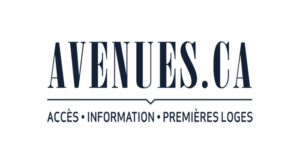Did you know ?
Inflation and recession: how to differentiate between them and react to them
Good ole inflation! From your cup of coffee to the gas pump, pet grooming or a new winter coat, you’re always paying more. Let’s compare inflation and recession, and place them in the context of your personal finances: How should you react when the economic forecast calls for stormy weather?
Where does inflation come from?
- Supply and demand – When there are more buyers than available products, prices go up.
- Labour shortage and salary increases
- Increases that cause more increases – For example, restaurants pay more for food (just like we do), so their profit margins shrink, causing them to increase prices on their menu in order to remain profitable.
Impact of inflation
- When the cost of nearly everything increases, your dollar doesn’t go as far. You need more money just to maintain the same purchase power.
- Since increases create insecurity, consumers and companies will sometimes opt to put off some expenses or projects.
- Interest rates increase because the policy interest rate set by the central banks also increase.
Better understanding recession
A recession occurs when economic activity declines for 6 straight months in most sectors. It’s measured using the gross domestic product (GDP). This disruption also impacts the work market and causes job losses.
How does a recession occur?
- Inflation and an increase in interest rates
- Decreasing government investments
- Stock market crash
- Economic turmoil due to a major event such as war, a natural disaster or pandemic
- A decrease in household spending
What are the consequences of a recession?
When a recession sets in, unemployment rises and income tends to plummet. To offset this, the Canadian job market has grown significantly since the end of the pandemic, so no worries there.
How to prepare yourself financially?
Here are some strategies for achieving this:
- Update your budget (or prepare one);
- Plan all your purchases, more than before;
- Make sure your investments are diversified and that their average return over the long run is greater than inflation rates.
Your best bet is to contact a financial advisor who can help you build a personalized strategy based on your investment profile.
For more information, call 1-888-852-6666.
This document is provided for information purposes only. Under any circumstances, it should not be considered as financial, legal or tax advice.

*Beneva designates Beneva Inc., Financial Services Firm.





